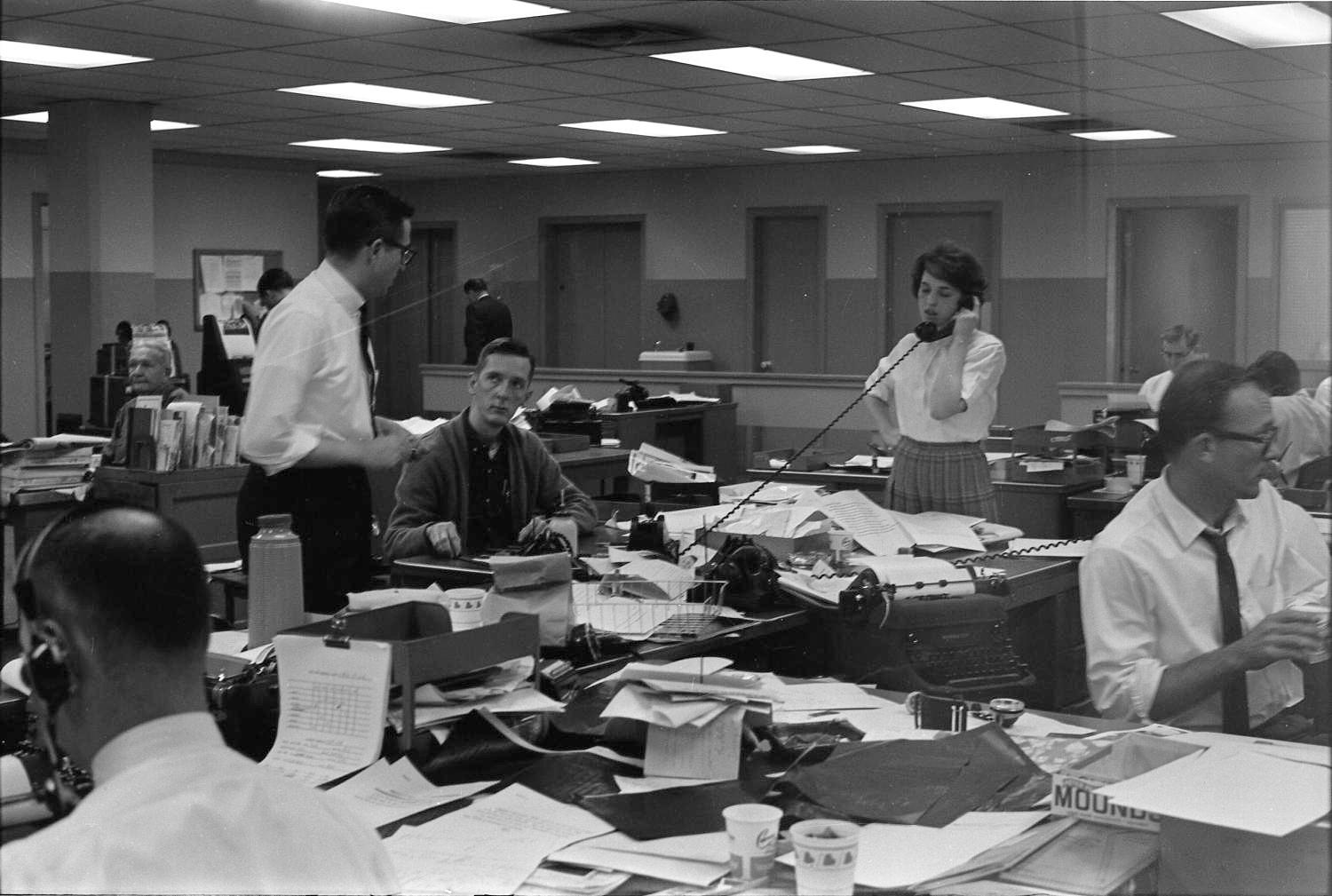Early in September of 1965 my internship at the Dallas Times Herald ended. They treated me well—better than well, in fact. I had been accepted by people far more experienced and talented than me as an equal, and I like to think I held up my end. Ken Smart told me to keep in touch during my senior year because he was interested in hiring me. Maggie and I squeezed all that we owned into a tiny U-Haul trailer, and back we drove to Lawrence. I would never again live in Texas.
Yet over the years my experience there hasn’t worn well. I suspect one reason is that because of its Kennedy assassination coverage two years before, I had put the newspaper on a pedestal a bit higher than it deserved. Yes, it more than distinguished itself in November and then December of 1963. But under all that, the Times Herald was just another struggling Texas afternoon newspaper, one that sometimes used its reporters as adjuncts of the advertising sales force.
I enjoyed talking to my fellow reporters after the last deadline in the afternoons. Clearly the star of the city room was a young man named Jim Lehrer. Ten years my senior, Jim had come to the Times Herald from the Dallas Morning News in 1963. He was one of those do-anything people that city editors loved because he could distinguish himself on any assignment.
That summer his mind was elsewhere. As his two young children slept, Lehrer the previous year or perhaps longer had labored over his first book, a novel he called “Viva Max,” an improbable but funny tale about how a guy who couldn’t shoot straight retook Texas for his native Mexico. Yes, a reverse Texas Revolution. Jim stuck around long enough to succeed Ken Smart at city editor in 1968. Two years later, he switched to TV news as anchor of KERA in Dallas and in 1973 moved on to Public Broadcasting Service, where he distinguished himself thereafter (when he wasn’t writing books).
One last thing about Jim: When he learned about my obsession with trains, he confessed his own. His dad had run a regional bus company out of Wichita, Kan., when he was a kid, and forever after Lehrer had this love of busses. I reintroduced myself to Jim decades later in Washington. By then, he had a collection of vintage busses! My wife appeared stunned that someone nuttier than her husband roamed the earth.
Two other people I still remember fondly. One was Ruth Ayers. Barely older than me, Ruth took me under her wing as her younger brother that summer—as well she should have, because my arrival meant she was off the detested obituary beat every other day. Keith Shelton, who covered politics, had been with the Times Herald for six years by 1965. Like me, he thought the competing Dallas Morning News had become complacent, not to mention off-the-charts conservative. But Keith was a thorn in Times Herald management’s side that summer. The Newspaper Guild had gotten enough signatures from editorial employees of the newspaper to force a vote on unionizing the newsroom. Keith seemed to be its most vocal supporter. The vote occurred soon after I left for school, and the Guild lost. Keith resigned to becoming managing editor of the Denton Record-Chronicle.
What the Times Herald experience confirmed was that I ought to direct my sights toward Chicago or Kansas City after my last year of college. At the top of my list was the Chicago Daily News, an afternoon newspaper. Then Charlie Corcoran got to me.
